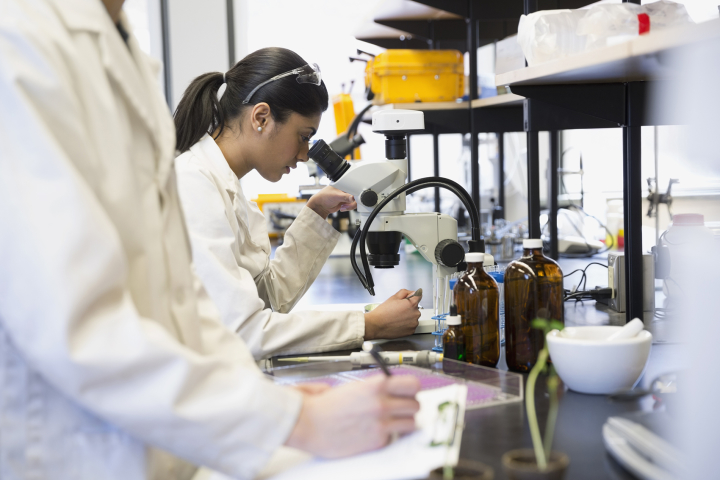The pharmaceutical industry is booming, with a projected market revenue exceeding $1 trillion by 2023 and a steady growth pattern forecast for the coming years. This surge in the market translates to a multitude of career opportunities, with some offering highly competitive compensation packages.
This article delves into the world of lucrative careers within the pharmaceutical sector. We’ll explore the top ten highest-paying jobs, their corresponding responsibilities, and the educational backgrounds and skillsets typically required to secure these positions.
Is a Career in Major Pharmaceuticals Right for You?
The answer is a resounding yes for those seeking a blend of:
- Growth and Innovation: The pharmaceutical industry is at the forefront of scientific advancements. Here, you’ll have the opportunity to contribute to groundbreaking research and development, potentially leading to life-saving discoveries.
- Job Security: The aging population and growing demand for new medications solidify the pharmaceutical industry’s position as a stable career path.
- Career Advancement: Many pharmaceutical jobs offer opportunities to climb the professional ladder, transitioning into managerial roles or specializing in a particular field.
- Financial Rewards: As we’ll explore in detail below, several positions within the pharmaceutical industry offer highly competitive salaries.
Top 10 Highest-Paying Jobs in Major Pharmaceuticals
1. Medical Science Liaison (MSL): $105,000 – $185,000 (Average: $149,000)
MSLs serve as a vital link between pharmaceutical companies, physicians, and patients. They bridge the gap between cutting-edge medical discoveries and their practical application in healthcare settings.
MSLs typically possess a bachelor’s degree in chemistry or biology, coupled with at least two years of experience in pharmaceuticals or related healthcare fields. Strong communication and interpersonal skills are paramount for success in this role.
2. Pharmaceutical Research Scientist: $89,000 – $146,000 (Average: $114,000)
These scientists are the backbone of pharmaceutical research and development. They delve into the intricate world of biomedical research, designing and conducting experiments to discover new drugs and assess their effectiveness. A minimum of a master’s degree in biology or chemistry is preferred, with a Ph.D. granting an edge in the job market.
3. Pharmaceutical Sales Representative: $30,000 – $114,500 (Average: $73,000)
Pharmaceutical sales representatives act as the bridge between pharmaceutical companies and healthcare providers. They market medication to doctors, nurses, and other healthcare professionals, educating them on the product’s benefits and applications.
A bachelor’s degree in business administration or marketing with a focus on sales is typically preferred. However, some companies provide training programs for new hires, making relevant experience valuable as well.
4. Pharmaceutical Manager: $96,000 – $164,000 (Average: $124,000)
Pharmaceutical managers oversee various aspects of pharmaceutical product development and ensure their safety and effectiveness. They also manage teams responsible for research, development, and production. A bachelor’s degree is a prerequisite, with some organizations seeking advanced degrees for senior positions. Prior experience in pharmaceuticals or related fields is highly advantageous.
5. Pharmaceutical Financial Analyst: $35,000 – $117,000 (Average: $84,000)
These financial specialists dissect the financial data of pharmaceutical companies. They play a crucial role in analyzing revenue streams, production costs, and the overall financial health of new and existing drugs. A bachelor’s degree in accounting or economics, coupled with a strong understanding of financial analysis principles, is essential for this role.
6. Biotechnology Consultant: $56,000 – $90,000 (Average: $70,000)

Biotechnology consultants work with pharmaceutical and biotech companies, offering expertise in product development and optimization. They advise clients on the latest technologies and advancements, assisting them in creating and improving products.
A bachelor’s degree in chemistry, biology, or a related field is required, with a minimum of three years of experience preferred. Problem-solving skills, creativity, and excellent communication abilities are key assets.
7. Biostatistician: $61,000 – $123,000 (Average: $82,000)
Biostatisticians leverage their expertise in statistics to analyze data from medical studies. They work collaboratively with healthcare providers and pharmaceutical companies, ensuring the validity and efficacy of clinical trials. An undergraduate degree in statistics or biostatistics is a must, with some pursuing further education for a deeper understanding of the field.
Strong quantitative skills (statistics and calculus), communication skills, and a talent for clear and concise writing are all essential for success in this role. Biostatisticians can find opportunities in universities, pharmaceutical companies, public health organizations, and medical research facilities.
8. Regulatory Specialist: $26,000 – $208,000 (Average: $68,000)
Regulatory specialists ensure that pharmaceutical companies comply with all relevant government regulations concerning safety, environment, and health. They may also contribute to the development of new regulations within the industry.
A bachelor’s degree in business administration is a solid foundation, with a specialization in regulatory affairs further enhancing your marketability. Experience in this field is highly valued by employers and can significantly accelerate your career progression. Regulatory specialists can work in various industries, including pharmaceuticals, manufacturing, healthcare, and retail.
9. Quality Control Chemist: $41,000 – $125,000 (Average: $75,000)
These chemists are the guardians of quality and safety within the pharmaceutical industry. They conduct meticulous tests to ensure medications meet strict purity and quality standards. A bachelor’s degree in chemistry is typically required, with some employers seeking advanced degrees in chemistry or biology.
A keen eye for detail and exceptional communication skills are crucial for success in this role. Quality control chemists primarily work in pharmaceutical labs and research facilities, meticulously testing drugs for impurities and adherence to quality standards.
10. Pharmaceutical Process Technician: $15,000 – $282,000 (Average: $68,000)
Pharmaceutical process technicians play a vital role in the production of medications, working within labs and manufacturing plants. Their responsibilities include assisting in the development of new drugs and ensuring adherence to established quality control protocols. The educational requirements for this role can vary.
While a bachelor’s degree in chemistry is preferred by some employers, others may consider an associate’s degree in biology or chemistry. Notably, some positions are accessible with a high school diploma and relevant experience in the field. Pharmaceutical process technicians can find opportunities in hospitals, drug manufacturing units, clinics, and research facilities involved in developing new drugs and vaccines.

